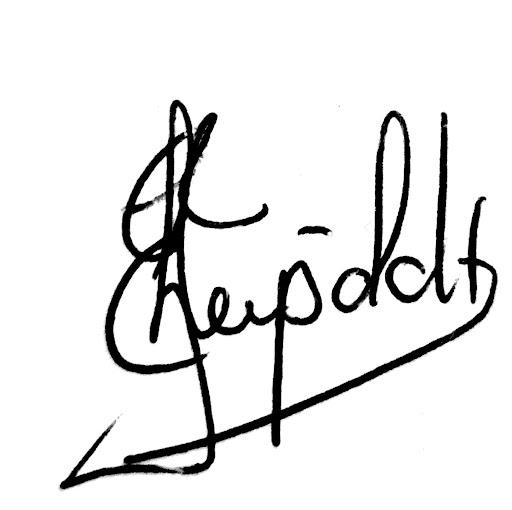Dear Customer,
For the past 2 years, we have certainly been living in interesting times with events that impact on all of us, but specifically also on agriculture. Covid and the current war situation between Russia and Ukraine particularly affect the delivery of agrotechnical agents and also the importation of fertiliser products. According to the economic appendix in “Businessweek”, Russia is one of the largest suppliers of almost every type of fertiliser nutrient and it is exported to all continents. Alexis Maxwell (a fertiliser analyst) emphasizes the importance of synthetic fertilisers and especially Ammonium based fertilisers. He credits this fertiliser with allowing world food production to keep pace with population growth over the past century.
Russia’s Ministry of Trade and Industry imposed a 2-month ban on fertiliser exports and China did the same with regard to the export of Phosphate and urea (According to Gro Intelligence). These are but some of the causes for the sharp rise in fertiliser prices (up to as much as 209%) and there are already large shortages of certain essential fertilisers. Unfortunately, this is going to lead to higher input costs and also higher food prices.
Nitrogen is one of the most important primary nutrients of living organisms, and an important component of proteins, DNA and chlorophyll. Nitrogen is common in the atmosphere as N gas (makes up almost 80%), but in the gas form, it is not available or absorbable to plants. It is only when this N gas is converted to ammonia (NH) and then to ammonium [NH] and nitrate [NO] that it becomes useful for plants. The conversion of N gas to a usable form is called nitrogen fixation and as we know this occurs in nature with the Rhizobium inoculation on soybeans.
It is in light of the current challenges regarding availability and cost of nitrogen-based fertiliser that Andermatt Madumbi would like to make you aware of our unique nitrogen-fixing bacterial product – Activate N®.
Activate N® is a combination of beneficial bacteria (Bacillus spp. and Herbaspirillum spp). with the ability to bind N gas from the atmosphere in a plant-available format. The great advantage of the bacteria in Activate N® is that they are active on all crops. The formulation contains not only free-living bacteria but also an endophytic isolate. The free-living bacteria live in the rhizosphere (the area around the roots) and phyllosphere (micro environment on the surface of above ground plant parts), and use plant secretions as a food source and in return provide nitrogen to the plant. The endophytic bacteria penetrate the plant tissue (through the stomata or cracks on the leaves, shoots, fruit or roots) and it can colonize the total plant, from where it then binds atmospheric nitrogen and supplies it to the plant.
Activate N® is an exciting new product and it will play an important role in supplementing available nitrogen to crops this, and also in future seasons.
Best regards,

Sias Leipoldt
Product Portfolio Manager
Beste Kliente,
Die afgelope 2 jaar leef ons in interessante tye met gebeure wat op ons almal, maar spesifiek ook op landbou impak maak. Covid en die huidige oorlog situasie tussen Rusland en die Oekraïne beïnvloed veral die lewering van landboukundige middels en ook die invoer van kunsmisprodukte. Volgens die ekonomiese bylae in “Businessweek” is Rusland een van die grootste verskaffers van bykans elke tipe kunsmis voedingstof en dit word uitgevoer na alle kontinente. Alexis Maxwell (‘n kunsmis analis) beklemtoon die belangrikheid van sintetiese kunsmis en veral Ammonium gebasseerde kunsmis. Hy gee hierdie kunsmis die krediet dat wêreld voedselproduksie kon tred hou met die bevolkingsaanwas die afgelope eeu.
Rusland se Ministerie van handel en industrie het ‘n 2 maande verbod op die uitvoer van kunsmis ingestel en China het dieselfde gedoen met betrekking tot die uitvoer van Fosfaat en urea (Volgens Gro Intelligence). Hierdie is maar van die oorsake vir die skerp styging in kunsmis pryse (tot so veel as 209%) en daar is reeds groot tekorte van sekere noodsaaklike kunsmisstowwe. Ongelukkig gaan dit lei tot hoër insetkoste en ook hoër voedselpryse.
Stikstof is een van die belangrikste primêre voedingstowwe van lewende organismes, en ‘n belangrike komponent van proteiene, DNA en chlorofil. Stikstof kom algemeen in die atmosfeer voor as N2 gas (maak amper 80% uit), maar in die gasvorm is dit nie beskikbaar of opneembaar vir plante nie. Dit is slegs wanneer hierdie N2 gas omgeskakel word na ammonia (NH3) wat dit bruikbaar raak vir plante. Die omskakeling van N2 gas na ‘n bruikbare vorm word Stikstof fiksering genoem en almal is bekend met Rhizobium entstowwe op sojabone wat verantwoordelik is vir hierdie proses.
Dit is in die lig van die huidige uitdagings met betrekking tot beskikbaarheid en koste van Stikstof gebaseerde kunsmis dat Andermatt Madumbi u graag wil bewus maak van ons unieke stikstof fikserende bakteriese produk – Activate N.
Activate-N is ‘n kombinasie van voordelige bakterieë (Bacillus spp en Herbaspirillum spp). met die vermoë om N2 gas uit die atmosfeer te bind in ‘n plantbeskikbare formaat (Ammonia). Die groot voordeel van hierdie bakterieë in Activate-N is dat dit op alle gewasse aktief is. Die formulasie bevat nie net vrylewende bakterieë nie maar ook endofitiese isolate. Die vrylewende bakterieë leef in die rhizosfeer (die area rondom die wortels) en benut wortelafskeidings as voedselbron en in ruil verskaf dit stikstof aan die plant. Die endofitiese bakterieë dring die plantweefsel binne (deur die huidmondjies of krake op die blare of wortels) en dit kan die totale plant koloniseer, vanwaar dit dan atmosferiese stikstof bind en aan die plant verskaf.
Activate N is ‘n opwindende nuwe produk en dit gaan ‘n belangrike rol speel in die aanvulling van beskikbare Stikstof aan gewasse hierdie, en ook toekomstige seisoene.
Vriendelike groete

Sias Leipoldt
Produk Portefeulje Bestuurder

